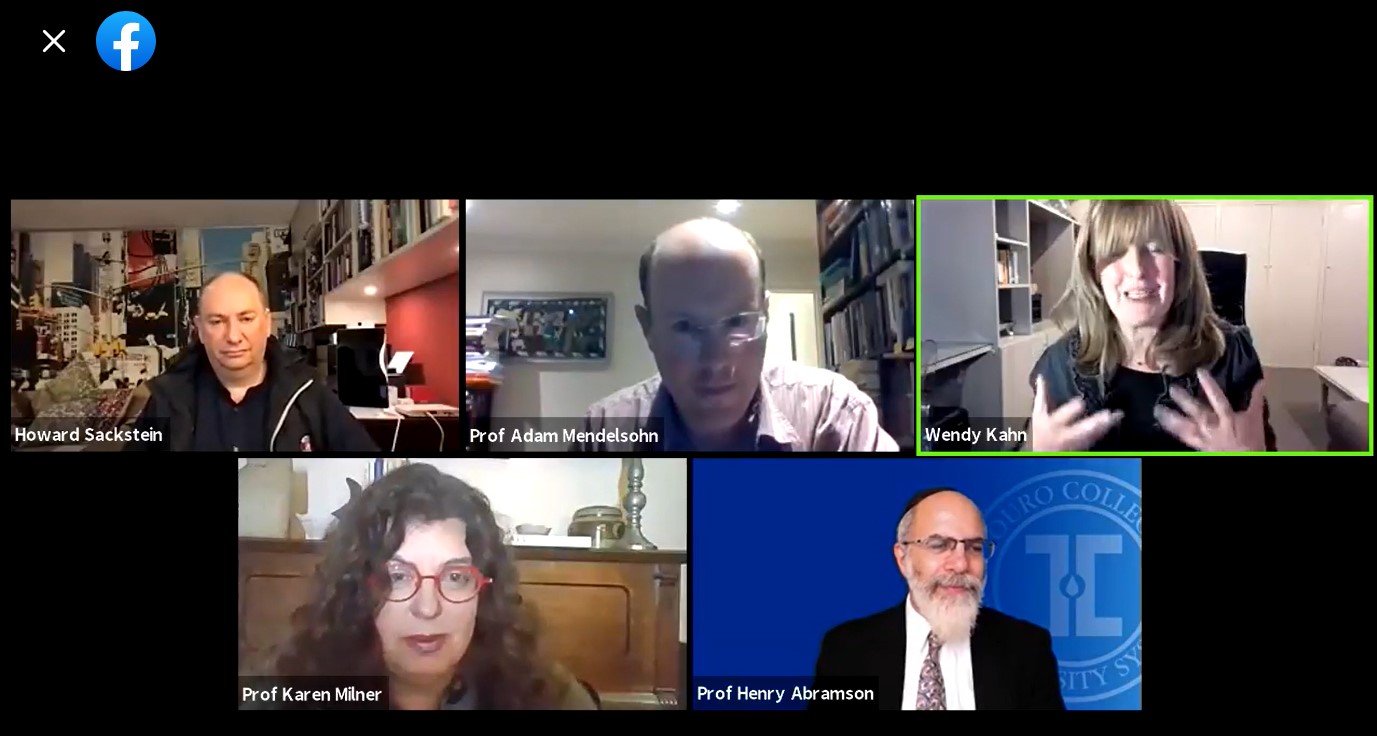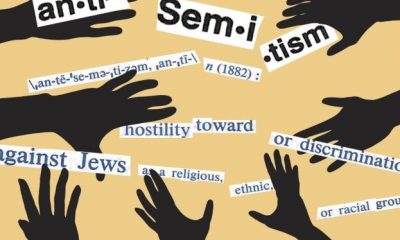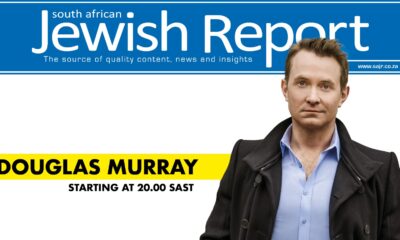
Community

Antisemitism – a continuously mutating virus
Published
3 years agoon
Eighty-six percent of viewers of a recent SA Jewish Report webinar said they thought antisemitism in South Africa was getting worse but the South African Jewish Board of Deputies (SAJBD) maintains that incidents are still low compared with other parts of the world.
The Board points out that spikes in antisemitic incidents correlate with conflicts in Israel, such as the recent May Gaza conflict, when it recorded 33 antisemitic incidents in one month compared with 37 incidents for the entire year in 2019, or 69 in 2020.
And it admits that political elites within our government have “been captured” by a small number of senior advisors feeding pro-Palestinian and often false news to top echelons, resulting in the ideological equation of Israel with apartheid and genocide. Anti-Israel sentiment is also driven by political expediency, particularly in the Western Cape, where the Palestinian cause resonates with voters.
“Hatred for Israel constitutes 90% of antisemitism in South Africa,” SAJBD National Director Wendy Kahn told a webinar titled “Antisemitism: Mutations of the Eternal Virus” on 11 July. Kahn said the majority of antisemitism in the country was fomented by the Boycott, Divestment, Sanctions (BDS) movement, where anti-Israel activity thinly disguises anti-Jewish sentiment.
“Jews have a reason to feel anxious, however statistics show that we’re not dealing with a massive antisemitism problem,” Kahn said. “We’re dealing with a threat to our relationship with Israel [which research shows about 90% of South African Jews have], and there’s lots of intimidation and harassment because of this association.”
“Studies have shown that amongst black South Africans, Jews are largely an unknown quantity,” said Adam Mendelsohn, the director of the Kaplan Centre for Jewish Studies & Research and associate professor of history at the University of Cape Town. Mendelsohn points out that although there are some traditional antisemitic association of Jews with money or anti-Christian sentiment, there is also some confusion of Jews with Muslims. And most South Africans are focused on local issues. “Elites can drive the conversation,” he said, “but it’s unlikely that programmatic antisemitism [as was witnessed in the country in the 1930s and 1940s] will emerge again.”
Though antisemitic incidents have traditionally taken place in the public sphere, such as graffiti; marches; Israel Apartheid Week; boycotts of stores, products, academics, and performances; and most recently, the discrimination shown to Jewish candidates for the Constitutional Court, antisemites changed tack in 2021, increasingly using social media to launch personal attacks.
“There has been increasing hatred and threats on personal groups,” Kahn said. “Children have been targeted on WhatsApp groups; health professionals have been targeted on their forums; Jewish businesses and business owners have been harassed; and rallies moved into our backyard [such as the demonstration by pro-Palestinian supporters outside Beyachad in Johannesburg].”
“We are certainly in a Gutenberg moment,” said Professor Henry Abramson, the dean of the Lander College of Arts and Sciences in Flatbush, New York, who has a YouTube channel on Jewish history. “We are at the nexus of change in terms of information technology and antisemitism.”
Abramson was referring to the invention of the printing press in the 15th century, which allowed images and sentiments to circulate much more widely than before.
“Social media allows people’s most venomous thoughts to penetrate the brain space, and people to connect with each other. In the United States, it’s bringing our democracy to a standstill,” he said. “We haven’t figured out what the ‘paper-bag’ moment is for social media [in terms of censorship].”
Abramson, who gave participants a tour of antisemitism through the ages, pointed out that antisemitism is by its nature “plastic”, mutating to fit different cultures, circumstances, and issues.
“If the Jews didn’t exist, antisemites would invent them,” he said, quoting philosopher Jean-Paul Sartre. “Antisemitism is becoming more and more divorced from reality. It’s a powerful way for people to view the world, particularly if they view it in a threatening way.”
The most recent iterations of antisemitism appeared in the early 18th century, when it became distinguished by racist notions of the Jews as a parasite race involved in a global conspiracy to bring down healthy society. These notions, dominant among the Nazis, are still prevalent.
Today, right-wing antisemitism in the United States has the notion that Jews are replacing white workers with African American workers, hence the “Jews will not replace us” slogan of the white supremacist Charlottesville rally in Virginia in 2017. It’s associated around the world with fear of the information age, inequality, and a sense of deprivation. On the left-wing, Jews are blamed for not being progressive and globally orientated enough, which fits into criticism of Israel. There are also variants of antisemitism associated with COVID-19, identifying Jews with the origin and perpetuation of the virus.
The bottom line is that antisemitism doesn’t have to make sense. It’s often contradictory.
“[In South Africa], we need protection for minorities against hate that goes beyond incitement to violence,” Kahn said, pointing out that unlike absolute freedom of speech in the United States, South Africa has the notion of protected speech in its Constitution. These concepts are being explored in the Hate Crimes Bill currently before Parliament and the Promotion of Equality and Unfair Discrimination Act.
The Board has called on the community to educate, engage, and report offensive social media and other media. “We don’t have to retreat,” said Mendelsohn. “We should be assertive, and support the constitutional, liberal elements of our society.”
Court has been an effective way for the Board to fight antisemitism. Many cases against unrepentant antisemites are being fought via this channel, but the Board stresses that such cases are brought only in extreme circumstances or as a last resort. Education campaigns are also effective in changing sentiment.
“Our constituents must have religious and cultural freedom,” says Kahn. “We will fight against threats for having a relationship with Israel. We will fight for the right to buy Israeli products in stores. We are continuously engaging behind the scenes to prevent the closure of the South African embassy in Israel.”
The Board warns of increased antisemitism with the upcoming 20th anniversary of the Durban World Conference Against Racism. The United Nations-mandated conference was held in Durban in 2001, and is recognised as the origin of the BDS movement. Kahn describes it as “one of biggest hate fests globally with long-term implications”.
“We need to learn the lesson of a UN-constituted forum holding such a conference,” she said. “We need to know what it meant to Durbanites, to global leaders, community leaders.”
Lastly, in Abramson’s words, “During the nine days [of the month of Av], we are duty bound to consider the cause of our downfall. Sages say it’s baseless hatred. Our task is to reduce the number of people who are ‘they’ and expand the number of people who are ‘we’. We need to build bridges of understanding and humanity.”










